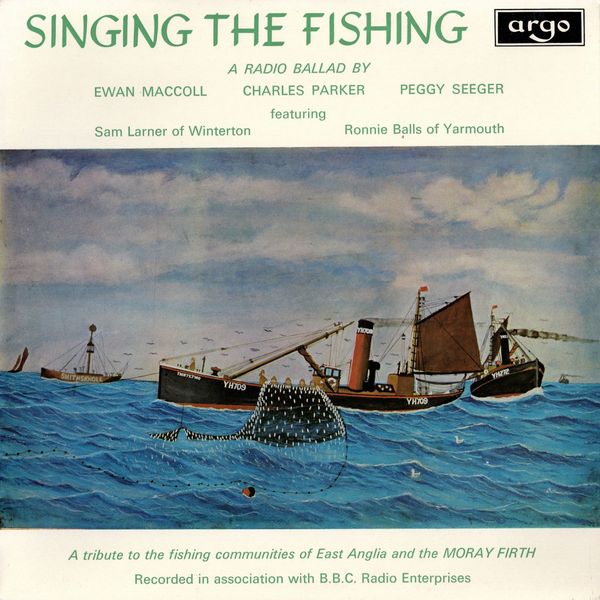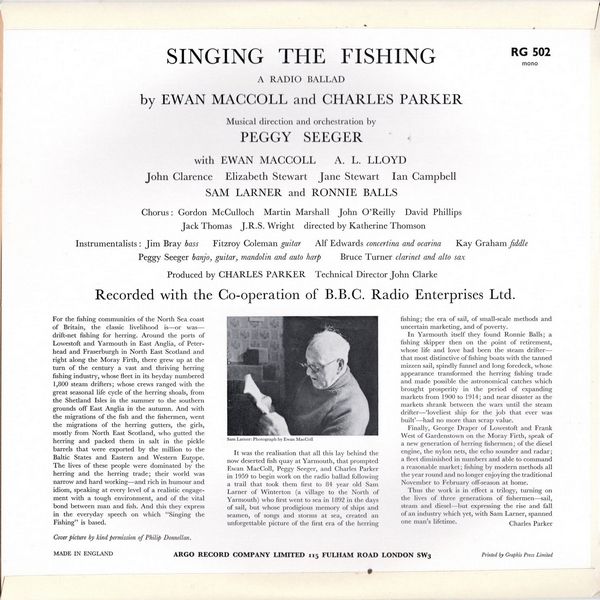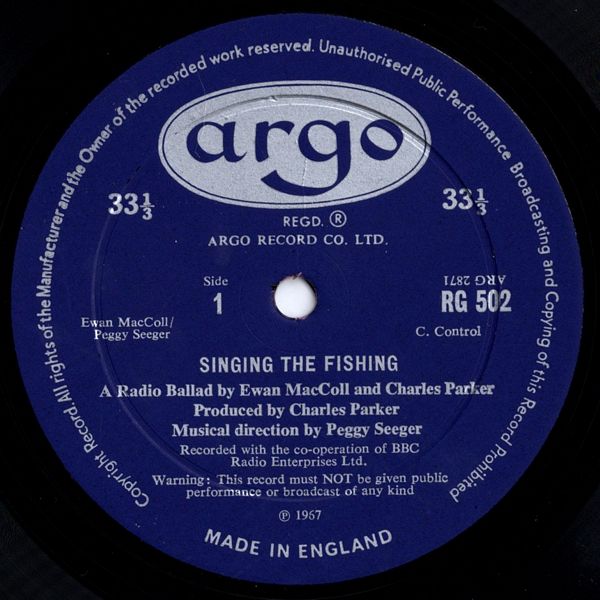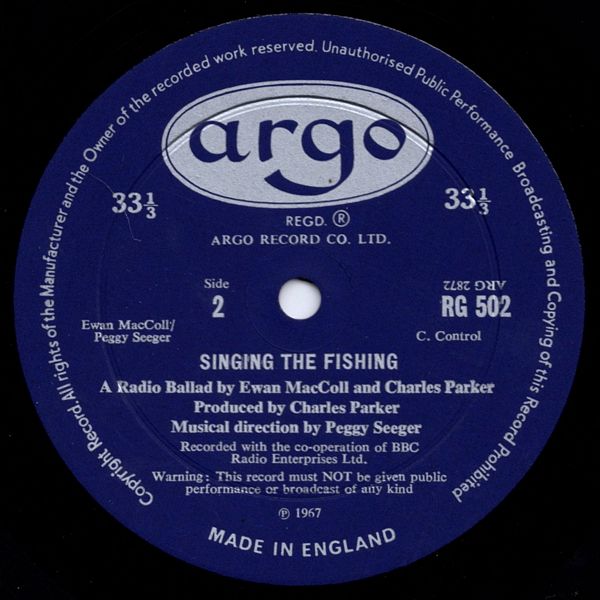

 |


 |
Sleeve Notes
For the fishing communities of the North Sea coast of Britain, the classic livelihood is — or was — drift-net fishing for herring. Around the ports of Lowestoft and Yarmouth in East Anglia, of Peterhead and Fraserburgh in North East Scotland and right along the Moray Firth, there grew up at the turn of the century a vast and thriving herring fishing industry, whose fleet in its heyday numbered 1,800 steam drifters; whose crews ranged with the great seasonal life cycle of the herring shoals, from the Shetland Isles in the summer to the southern grounds off East Anglia in the autumn. And with the migrations of the fish and the fishermen, went the migrations of the herring gutters, the girls, mostly from North East Scotland, who gutted the herring and packed them in salt in the pickle barrels that were exported by the million to the Baltic States and Eastern and Western Europe. The lives of these people were dominated by the herring and the herring trade; their world was narrow and hard working — and rich in humour and idiom, speaking at every level of a realistic engagement with a tough environment, and of the vital bond between man and fish. And this they express in the everyday speech on which "Singing the Fishing" is based.
It was the realisation that all this lay behind the now deserted fish quay at Yarmouth, that prompted Ewan MacColl, Peggy Seeger, and Charles Parker in 1959 to begin work on the radio ballad following a trail that took them first to 84 year old Sam Larner of Winterton (a village to the North of Yarmouth) who first went to sea in 1892 in the days of sail, but whose prodigious memory of ships and seamen, of songs and storms at sea, created an unforgettable picture of the first era of the herring fishing; the era of sail, of small-scale methods and uncertain marketing, and of poverty.
In Yarmouth itself they found Ronnie Balls; a fishing skipper then on the point of retirement, whose life and love had been the steam drifter — that most distinctive of fishing boats with the tanned mizzen sail, spindly funnel and long foredeck, whose appearance transformed the herring fishing trade and made possible the astronomical catches which brought prosperity in the period of expanding markets from 1900 to 1914; and near disaster as the markets shrank between the wars until the steam drifter — 'loveliest ship for the job that ever was built' — had no more than scrap value.
Finally, George Draper of Lowestoft and Frank West of Gardenstown on the Moray Firth, speak of a new generation of herring fishermen; of the diesel engine, the nylon nets, the echo sounder and radar; a fleet diminished in numbers and able to command a reasonable market; fishing by modern methods all the year round and no longer enjoying the traditional November to February off-season at home.
'Thus the work is in effect a trilogy, turning on the lives of three generations of fishermen — sail, steam and diesel — but expressing the rise and fall of an industry which yet, with Sam Larner, spanned one man's lifetime.
Charles Parker